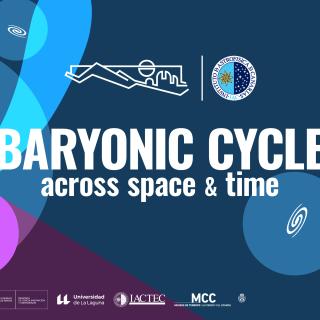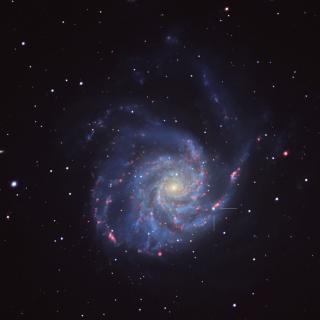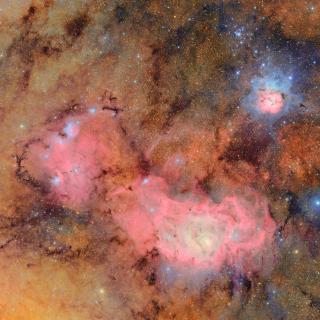The Canary Islands Institute of Astrophysics (IAC) is organizing the XXXVI Canary Islands Winter School of Astrophysics, which will be held in San Cristóbal de La Laguna (Tenerife) from November 17 to 22, 2025. Under the title "Key Optical technologies for Astronomy", the school will focus on cutting-edge optical and algorithmic technologies that will define the future of Astrophysics.
This edition, led by Professors Jeff Kuhn (University of Hawaii and IAC) and Rafael Rebolo (IAC), will involve approximately 35 advanced Master's students, doctoral candidates, and early-career postdoctoral researchers from more than ten different countries (including China, Mexico, Ecuador, Argentina, the Netherlands, and Germany). The goal is to provide them with a practical introduction to emerging optical technologies that are revolutionizing how fundamental astronomical problems are addressed.
Scientific and Technological Approach
The scientific basis of this school is that advances in optics and algorithms enable effective solutions to persistent challenges in astrophysics. The program will offer an immersion in high-impact technologies, including integrated photonics, freeform optics concepts for space instruments, additive manufacturing, and machine learning.
The use of these advanced technologies will be crucial in the coming years for solving fundamental problems in astronomy, using both ground-based and space-based observatories. Among these research challenges are high-contrast imaging—necessary for measuring the properties of terrestrial planets—and wide-field Adaptive Optics (AO) corrections—key to understanding the generation of solar magnetic fields.
The Canary Islands Winter School of Astrophysics is a key event in the IAC calendar, which has been organizing it since 1989. The school, which takes place in a relaxed and participatory atmosphere, will be held in the IACTEC building, the IAC's technological and business collaboration space.
Academic Program and Distinguished Speakers
Participants will have the opportunity to learn directly from world-renowned specialists. Each professor will deliver several talks addressing recent advances and innovations in specific fields:
• Photonics in Astronomy. Prof. Martin Roth (Leibniz Institute for Astrophysics Potsdam, AIP)
• Wavefront Detection. Prof. Maud Langlois (CNRS)
• Precision Manufacturing and Metrology. Prof. Wolfgang Osten (University of Stuttgart)
• Freeform Optics. Prof. Jannick Rolland (University of Rochester)
• Machine Learning Tools. Prof. Andrés Asensio (IAC)
• Optical Systems for Space. Prof. Simon Peter Worden (Breakthrough Foundation)
• Quantum Optical Technologies and Space. Prof. Jorge Piris (ESA)
In addition to the lectures, attendees will be guided in close interaction with the speakers and associate professors to solve practical exercises (Hands-on Workshops). These sessions will focus on the design of optical components and telescope subsystems such as mirrors, AO systems, photonic lanterns, ML algorithms, and optical communications.
All participants in the Winter School will have the opportunity to present their own research. The activities will be complemented by a visit to the Teide Observatory in Tenerife, and optionally a visit to the Roque de los Muchachos Observatory in La Palma.
The programme also includes a public invited talk on Wednesday, November 19, at 12:30 p.m., on "optical communication systems in space," which will be given by Jose Velazco, CEO and founder of Chascii Inc.




